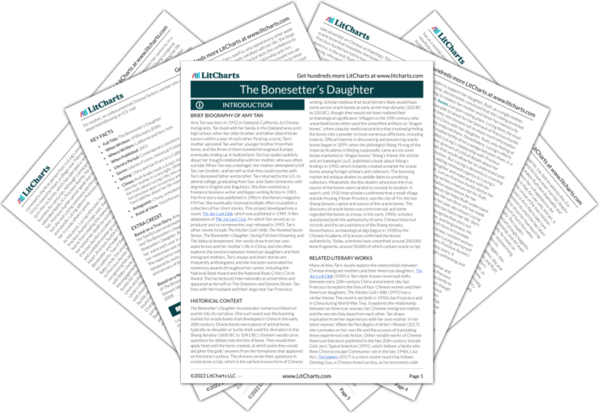Once more, Great-Granny's respect for traditional beliefs and her fear of the dead ensures Precious Auntie's survival and, ultimately, LuLing's birth. For as much as LuLing's belief in curses will bring her much misery in the years to come, the fact that she is allowed to exist because of superstition explains—if only indirectly—why she places so much value in it. Finally, this section of LuLing's narrative is important because it conveys information that LuLing did not have when Precious Auntie was alive: namely, the critical fact that LuLing is Precious Auntie's child. The novel has already established how Ruth's ignorance about LuLing's past leads her to hurt LuLing in ways she can't begin to understand. Likewise, one may infer that LuLing's ignorance about Precious Auntie's life will lead her, too, to form misunderstandings that have grave consequences.
